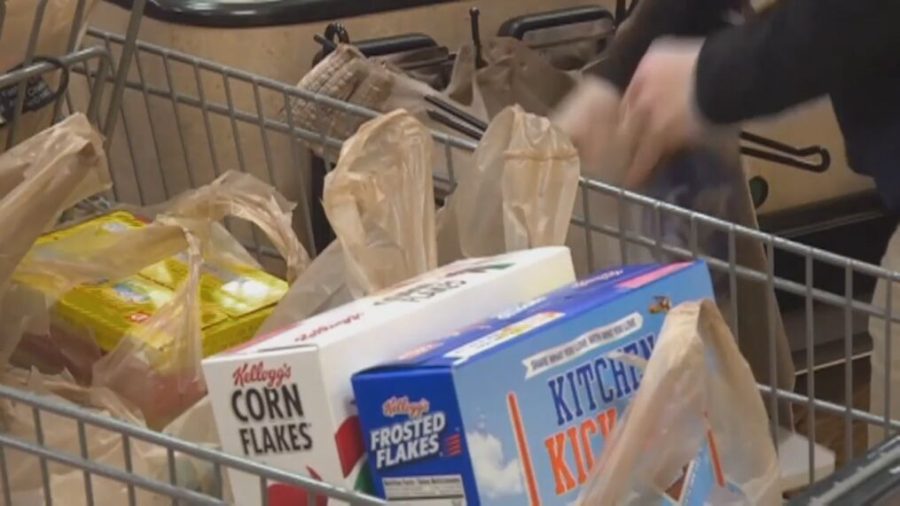Five-cent plastic bag tax floats into Vienna
March 29, 2022
All disposable plastic bags at grocery, convenience and drug stores in Fairfax County now come with a five-cent tax.
The tax, which went into place on Jan. 1, 2022, will not apply to bags used to wrap, contain or package perishable food items in order to avoid damage or contamination, carry dry cleaning or prescription drugs, or multiple plastic bags sold in packages and intended for use as garbage, pet waste or leaf removal bags. Stores are encouraged to begin selling durable and reusable plastic bags with handles.
This new legislation aims to increase public usage of reusable shopping bags, so the tax is very much avoidable.
“The goal of the plastic bag tax is to change consumer behavior,” Fairfax city sustainability coordinator Stefanie Kupta said in a council meeting concerning the tax. “So we want them to transition from using disposable plastic bags to sturdy, durable, reusable bags.”
The tax will ultimately reduce the amount of plastic bags being circulated in our environment, which will overall improve the quality of the county’s waterways.
“Plastic bags are one of the most common items found during community cleanups of our parks, streams, and lakes,” Braddock District Supervisor James Walkinshaw said in a statement last year concerning the bill. “They damage aquatic ecosystems and the micro-particles of plastics created when they break down make their way into our water sources. This measure will reduce plastic pollution and the modest funds collected will be reinvested into litter prevention and to providing reusable bags for low-income community members.”
For the first year of the tax implementation, through Dec.2022, companies will be allowed to retain two cents from each plastic bag tax, meant to aid in transition. After this transition period, however, this retaintment will be lowered to one cent and the rest of the tax revenue will go to the county. This will go towards environmental cleanup programs, such as litter mitigation, environmental education and waste reduction programs, as well as assisting the WIC food stamp initiative in Fairfax County.



